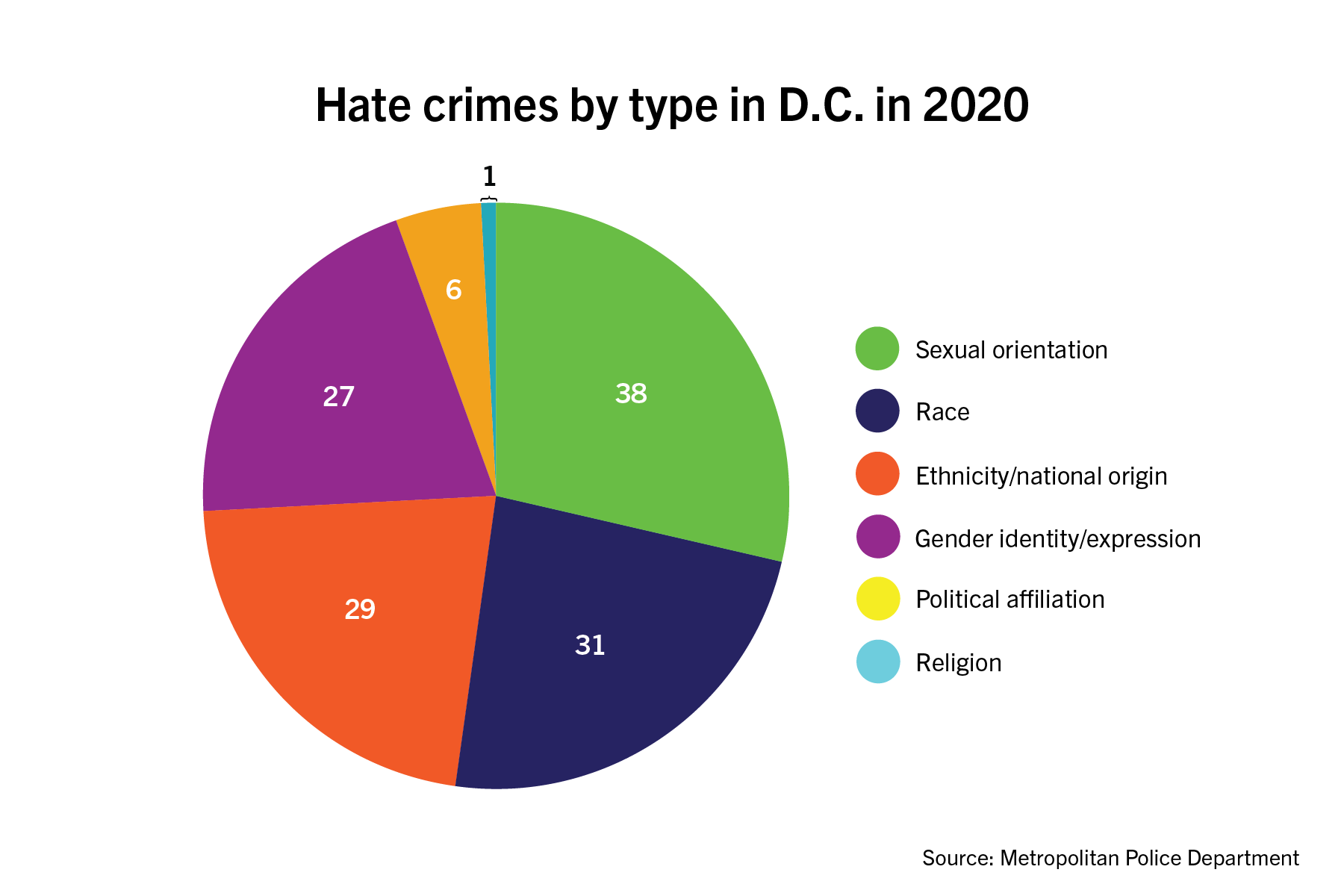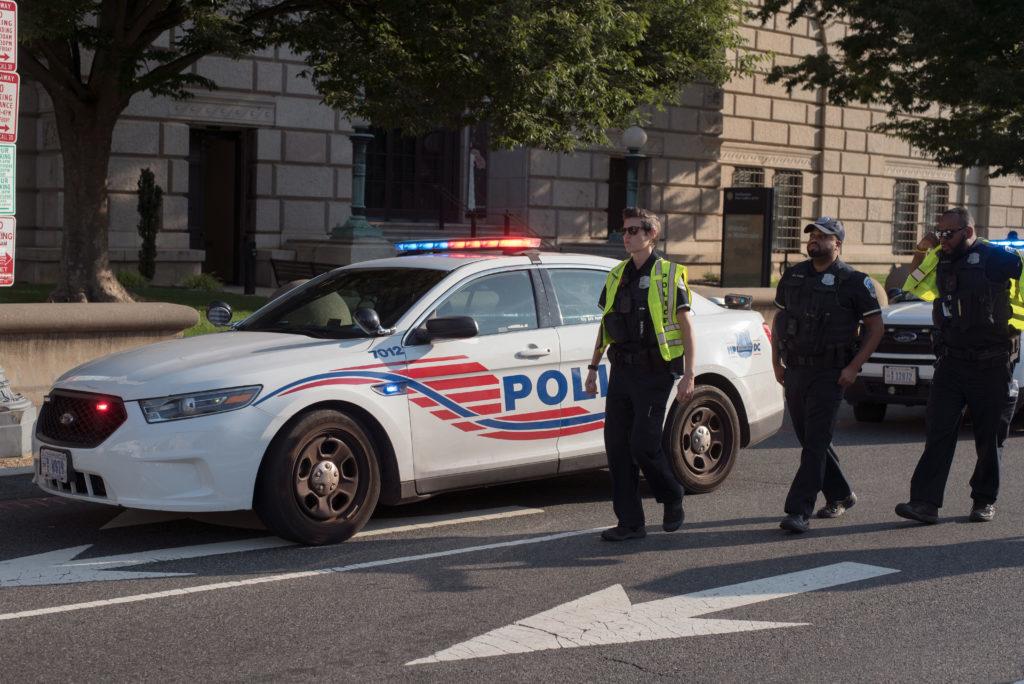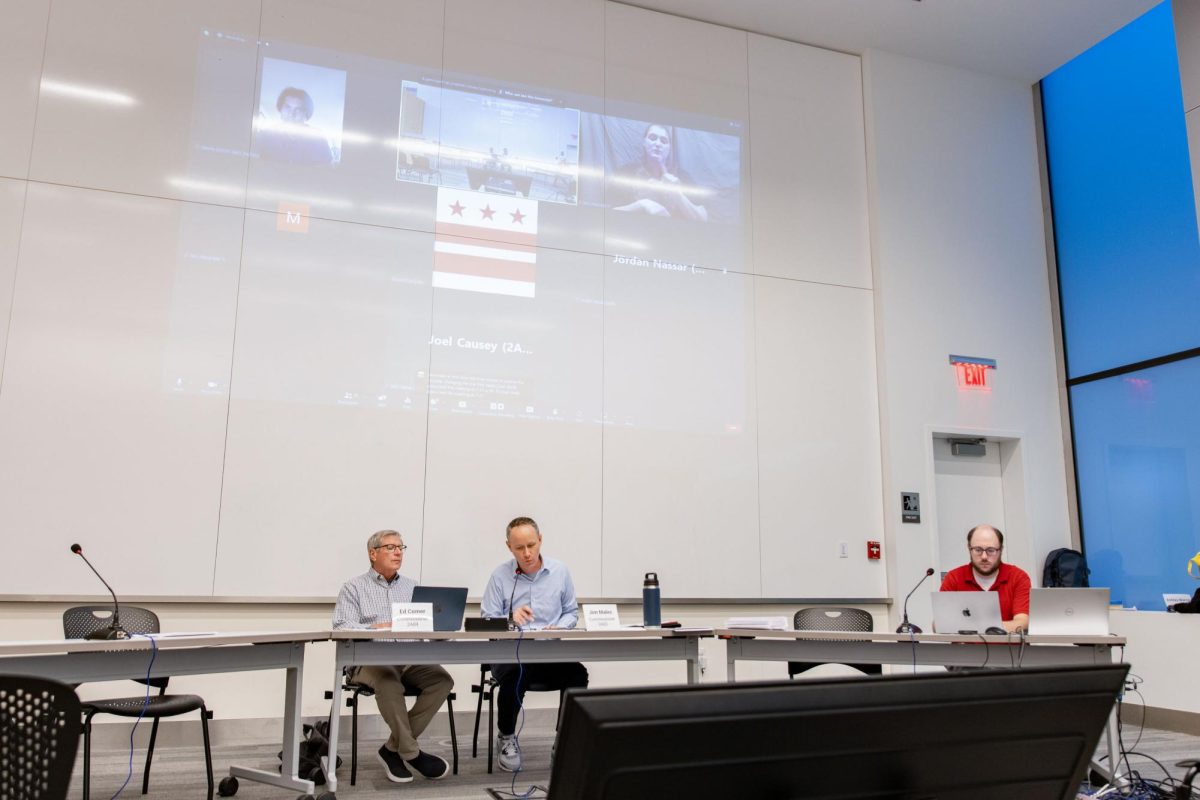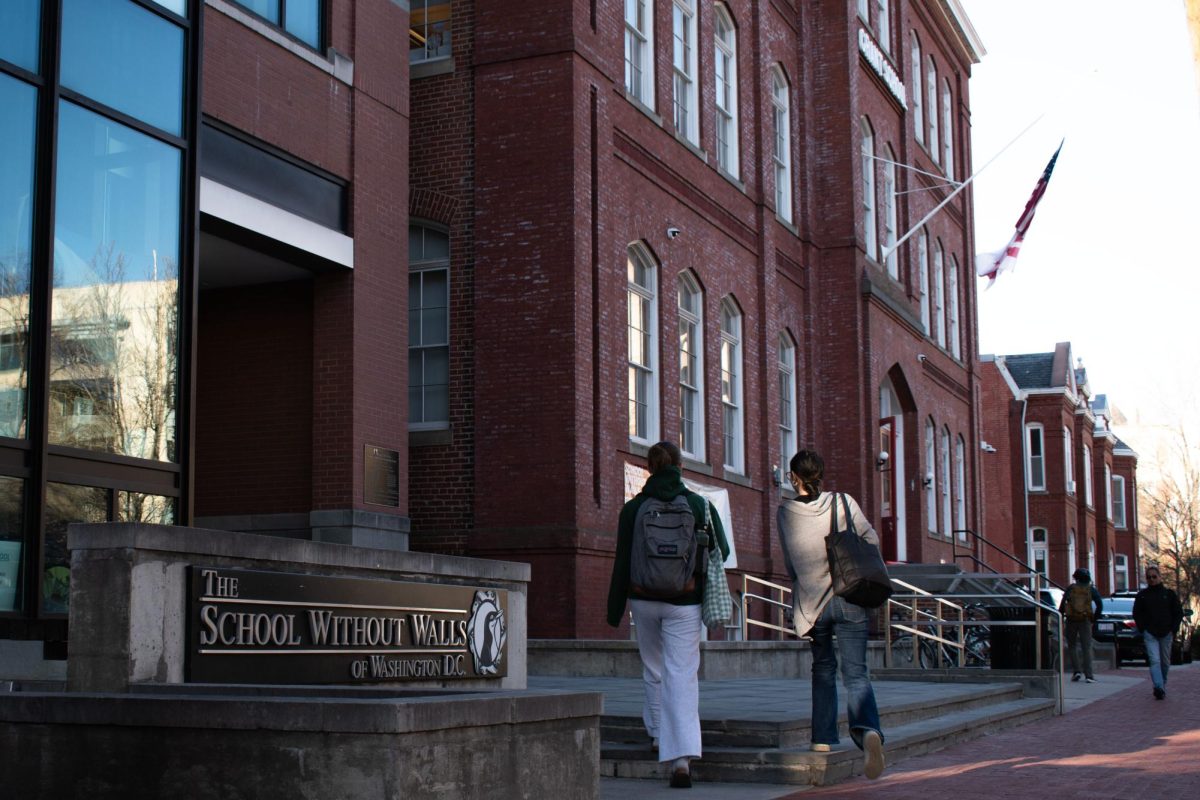Local leaders said hate crimes against Asian Americans and Pacific Islanders in D.C. have made those community members feel targeted since the outbreak of the COVID-19 pandemic.
The Metropolitan Police Department recorded 132 hate crimes in D.C. last year, about one-third of which were reported in MPD’s second district, which encompasses Foggy Bottom. Local leaders said these incidents have caused emotional harm to the Asian American and Pacific Islander communities, and city officials need to take legislative action to combat hate crimes.
img {
margin-top: 0px;
margin-bottom: 0px;
}

Sidney Lee | Graphics Editor
An MPD spokesperson said the department’s Special Liaison Branch, a unit that partners with “historically underserved communities,” has organized community meetings and daily visits to Asian-owned businesses following last month’s shooting in Atlanta that killed eight people, six of whom were women of Asian descent.
The spokesperson said officers have worked with the Mayor’s Office of Asian and Pacific Islander Affairs to engage in community walk-throughs and business check-ins to show “solidarity and support.”
“In response to the horrific events in Georgia, the Special Liaison Branch has ensured continual daily visits to Asian-owned businesses to inform on general safety and remind community members of reporting hate bias incidents and crimes,” the spokesperson said in an email.
Officers recorded 29 hate crimes based on ethnicity and 32 based on race last year, according to MPD data. The department counted 38 hate crimes based on sexual orientation, 27 based on gender identity, six based on political affiliation and one based on religion.
MPD’s website states a hate crime is “motivated by prejudice,” which could be based on race, religion, gender, age or several other statuses. Defendants of hate crimes face a 50 percent longer prison sentence than “the maximum term for the underlying crime” they committed, the website states.
The spokesperson said the department has taken steps to address a nationwide increase in hate crimes, working to raise awareness and increase reporting. They said all officers underwent training to better identify hate crimes in 2015 and said the training has heightened officers’ awareness of potential incidents.
Reported hate crimes have surged in D.C. over the past several years, rising from 66 in 2015 to 203 in 2019 before dipping during the pandemic, according to the department’s data. The spokesperson said officers are focused on making community members more comfortable with reporting crimes.
“The department’s goal is not to reduce reports of hate crimes but rather to ensure that all hate crimes are reported and investigated and to provide appropriate support for both the victim and the community,” the spokesperson said.
Trupti Patel, a member of the Foggy Bottom and West End Advisory Neighborhood Commission, said a recent influx in first- and second-generation Americans from immigrant families has driven up hate crimes around the local neighborhood.
“We should not make fellow residents feel like they do not have a vested interest in how this community prospers and engages in the city, and I say this because this is not a battle long-term residents will win, continuing to treat many of the residents as if they do not have a stake in this community,” Patel said.
Patel said the spike in reported hate crimes against people of Asian American and Pacific Islander descent has contributed to a growing sense of anxiety among local community members. She said the rise in hate crimes since the pandemic started has been “painful,” and neighbors should check on community members who may be suffering “in silence.”
“I still have close friends who do not feel safe walking outside of their homes because they feel like they’re going to become targeted if they leave just due to the fact that they happen to be Asian American,” Patel said.
A female student of Asian heritage reported she was the victim of racially insensitive insults while on campus last month.
“As an AAPI woman that stands in solitary with her Chinese American brothers and sisters, it’s been really hard when people feel targeted due to their ethnicity, their heritage, their background, their traditions,” Patel said. “This is very hurtful to all of us who are of AAPI heritage.”
Patel said incidents like last month’s shooting in Georgia indicate the “magnitude” of anti-Asian sentiment in the country since the beginning of the pandemic. Atlanta police have said it’s too early to determine a motive for the shooting, but bias has not been ruled out.
A study of 16 American cities, including D.C., showed that anti-Asian American and Pacific Islander hate crimes increased by 149 percent from 2019 to 2020.
“Many in the community had felt that they had been ringing the alarm for well over a year that there will be someone who will be murdered as a result of their ethnicity,” Patel said.
She said D.C. community members need to collaborate through “local community engagement” to protect people of Asian American and Pacific Islander heritage from potential acts of hatred and to report hateful incidents they witness. She added that the D.C. Council needs to “beef up” hate crime legislation in the District, calling for stricter penalties if someone targets “anyone of minority status.”
“Safety starts with all of us,” Patel said. “It’s not being the silent bystander and witnessing someone who is of AAPI heritage get insulted or picked on.”
Senior and ANC Commissioner Yannik Omictin said some of his constituents have told him they have been victims of recent hate-based incidents. He said the pandemic’s origins in China has fueled hate crimes against Asian Americans and Pacific Islanders.
“The increased China bashing has essentially become extrapolated into hate against Chinese Americans and then anyone who looks remotely East Asian,” Omictin said. “Because people hear all of this stuff about China, they have found it to be OK to be violent against Asians.”
He said locals should support Asian-owned businesses and advocate for more equitable health care resources to protect others from hatred, noting how GW contains a large Chinese, Asian American and Pacific Islander population.
Nearly 3,000 students enrolled this academic year are of Asian descent, according to institutional research data.
“We have to step it up as a community to make sure that our Asian siblings are being protected,” Omictin said.
He said city and local officials need to look beyond traditional methods of fighting crime, like heavy policing, to combat hate crimes.
“It just can’t be police, police, police,” he said. “Combating hate crimes is about making sure that the state sends a very clear message that it supports people of color, that it’s going to provide the resources that we need to survive the next day.”







